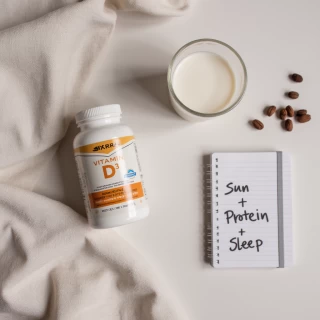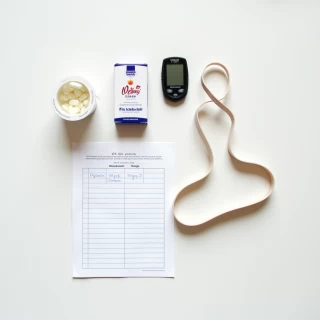
- 8th October 2025
Table of Contents
- Adrenal Glands 101: Small Organs, Big Influence on BP
- When to Suspect a Hormone-Driven Cause
- Key Tests Doctors May Advise
- What’s New in Adrenal Surgery—and Why It Matters
- Who Stands to Benefit the Most?
- Preparing the Body Before Surgery
- What to Expect in Hospital
- Recovery at Home: Simple, Doable Steps
- Realistic Expectations: What Improves After Surgery?
- Common Questions I Hear from Patients
- “Will I definitely get rid of BP tablets?”
- “Is this surgery risky?”
- “What if both glands are overactive?”
- “How soon can I get back to work?”
- When to Seek a Specialist Opinion
Uncontrolled blood pressure is common across Delhi and NCR. For most people, tablets work well. But for a small, important group, the real trigger sits quietly above each kidney—the adrenal glands. When these glands overproduce certain hormones, blood pressure can resist multiple medicines, potassium may drop, and headaches, palpitations, or unexplained fatigue can appear.
A newly reported minimally invasive approach to adrenal surgery has renewed attention on treating these hormone-driven cases more safely and quickly. If you or a family member are on several BP medicines with poor control, or you’ve been told your reports suggest a hormonal cause, understanding this option can help you make timely decisions.
Adrenal Glands 101: Small Organs, Big Influence on BP
Each adrenal gland has two parts. The outer layer can make aldosterone and cortisol; the inner core can make adrenaline-like chemicals. When any of these go out of range, blood pressure may soar or swing:
- Aldosterone excess (often due to a small growth in one gland) drives the kidneys to retain salt and water and spill potassium—leading to high BP and low potassium.
- Cortisol excess can raise BP, sugar levels, and cause central weight gain and weakness.
- Adrenaline-type excess (pheochromocytoma) can cause sudden spikes in BP with pounding heart, sweating, and anxiety.
Not everyone with hypertension needs adrenal testing. But certain clues should prompt evaluation, especially when blood pressure remains high despite two or more drugs, or potassium is low without a clear reason.
When to Suspect a Hormone-Driven Cause
- Blood pressure stays high despite using two or more medicines in good doses.
- Low potassium on routine lab reports.
- Spells of pounding heartbeat, sweating, tremors, or headaches.
- Blood pressure fluctuates suddenly—normal at times, very high at others.
- Family history of early-onset high BP or adrenal problems.
If any of these sound familiar, talk to your physician about a stepwise evaluation. Catching the root cause early can spare years of trial-and-error with tablets.
Key Tests Doctors May Advise
Testing is typically staged and guided by your physician:
- Screening blood tests for aldosterone and renin (often as a ratio), cortisol patterns, and basic panels including potassium.
- Imaging (CT/MRI) to look for growths in one or both glands.
- Functional confirmation—specialized checks to confirm that the growth is truly overproducing a hormone.
- Selective sampling in certain aldosterone cases to confirm which side is at fault (done in experienced centers).
Not everyone needs every test. Your doctor chooses what’s necessary based on symptoms, examination, and initial results.
What’s New in Adrenal Surgery—and Why It Matters
Classic open surgery has largely given way to minimally invasive methods. The newer approaches go a step further: smaller incisions, refined camera systems, better instruments, and improved access routes that reduce tissue handling. In practical terms, the advantages often include:
- Less pain after surgery and lower need for strong painkillers.
- Faster recovery—quicker return to routines and shorter hospital stay.
- Smaller scars with a cleaner cosmetic outcome.
- Comparable or improved safety when performed by trained teams in suitable patients.
For carefully selected cases—especially where one adrenal gland is the culprit—removing the overactive part can dramatically improve blood pressure control. Some patients reduce the number of tablets they take; a few may even come off BP medicines entirely (this depends on the duration of BP, vessel changes, age, and other factors).
Who Stands to Benefit the Most?
You’re more likely to benefit from surgery if:
- You have confirmed excess of a specific hormone from one adrenal gland (most commonly aldosterone).
- Imaging and functional tests clearly point to one side.
- You’re medically fit for anesthesia.
- You’ve discussed alternatives and expectations in detail with your care team.
When both glands are involved—or surgery isn’t suitable—medical management still works well in many cases (for example, drugs that block aldosterone’s effects).
Preparing the Body Before Surgery
Your surgeon and physician will individualize this, but a typical plan involves:
- Optimizing blood pressure with the right combination of medicines.
- Correcting electrolytes (especially potassium) before the procedure.
- Adrenaline-excess cases (pheochromocytoma) need special tablets to stabilize pulses and pressure before surgery.
- Anesthesia assessment to review heart, lungs, and other systems.
Tell your care team about all tablets and supplements you take. Bring previous reports and prescriptions to the pre-op visit for a clear plan.
What to Expect in Hospital
Most minimally invasive adrenal procedures are performed under general anesthesia. Depending on the approach and your recovery, you may be monitored in a high-dependency area for a short time. Early gentle walking is encouraged once your team allows it, as it helps circulation and lung function.
Pain is usually manageable with standard medicines. You’ll be guided on when to sip water, advance fluids, and move to regular meals. Your team will watch BP and electrolytes closely for a few days.
Recovery at Home: Simple, Doable Steps
- Rest generously for the first week; add gentle movement as comfort returns.
- Hydrate well unless you’ve been advised fluid limits for another condition.
- Meals should be light and regular for the first few days—think dal, curd, soft paneer, well-cooked vegetables, and modest portions of grains.
- Wound care—keep the area clean and dry as instructed; watch for redness, discharge, or fever.
- Medicine adjustments—don’t stop BP tablets on your own. Doses are changed stepwise after review of readings.
Plan your first follow-up visit as advised. Carry a log of home BP readings to help your doctor titrate medicines sensibly.
Realistic Expectations: What Improves After Surgery?
Outcomes vary. Improvement is common when a single overactive gland is removed early. The longer high BP has persisted, the more stiff the vessels become, and the less likely it is that tablets can be stopped completely. Still, many patients see fewer medicines, better readings, and better overall well-being.
Your doctor will discuss the exact probabilities for your case after reviewing tests, age, duration of high BP, kidney function, and other health factors.
Common Questions I Hear from Patients
“Will I definitely get rid of BP tablets?”
No promise is universal. Some patients do come off medicines; many reduce the number or doses. The aim is safer control and fewer complications long term.
“Is this surgery risky?”
All procedures carry risk. With trained teams and proper selection, minimally invasive adrenal surgery is considered safe for suitable patients. Your team will explain benefits and risks for your situation.
“What if both glands are overactive?”
Then medical therapy is often chosen. In certain scenarios, tailored procedures may still be considered. Decisions are individualized.
“How soon can I get back to work?”
It varies by person and procedure. Some people return in 1–2 weeks for desk roles; physical jobs may need more time. Follow your surgeon’s advice.
When to Seek a Specialist Opinion
- You’re on two or more BP medicines with poor control.
- You have low potassium without a clear reason.
- You get episodes of pounding heartbeat, sweating, and headaches with BP spikes.
- Your reports suggest a hormonal driver, but you’re unsure of next steps.
A timely, targeted evaluation can transform care. The sooner the root cause is addressed, the better the long-term outlookResource
Need a focused evaluation for stubborn blood pressure?
Get a personalized plan and clear next steps. Book a consultation with Dr. Pankaj Kumar.














